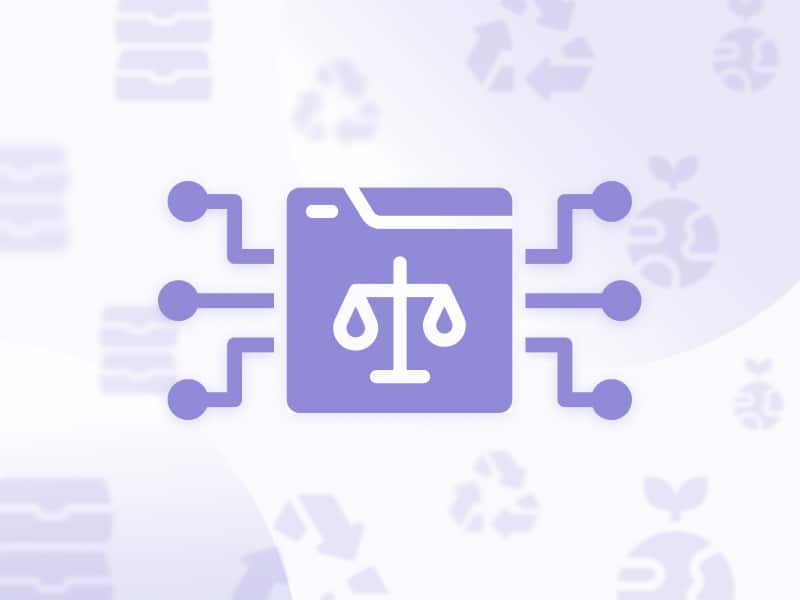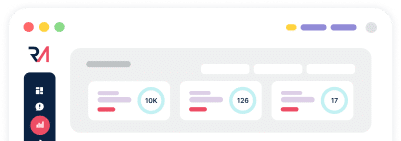Sustainability in packaging has shifted from being a mere trend to becoming a global imperative. Governments across the world are establishing ambitious timelines for sustainable packaging regulations, urging businesses to adapt swiftly. The focus on reducing waste, enhancing recyclability, and fostering a circular economy is central to these efforts. This article explores how regions are preparing for these changes and highlights the transformative role AI can play in meeting sustainability goals.
Regional Preparations for Sustainable Packaging
Different regions are approaching sustainability in packaging with distinct regulatory frameworks and goals, reflective of their environmental priorities and socio-economic contexts.
Amérique du Nord
North America has seen significant momentum in implementing policies aimed at sustainable packaging.
- California SB 54: Mandates full compliance by 2027, requiring all packaging to be recyclable or compostable.
- Extended Producer Responsibility (EPR) in Maine and Colorado: Places the responsibility of waste management on producers, incentivizing sustainable designs and processes.
Asia-Pacific
The Asia-Pacific region is embracing aggressive measures to combat packaging waste.
- Australie: Targets include phasing out PFAS chemicals by December 2023 and requiring mandatory recycled content in packaging by 2025.
- Southeast Asia (Philippines & Vietnam): Gradual bans on single-use plastics are underway, alongside initiatives to promote biodegradable alternatives.
Europe
Europe is leading the charge with highly coordinated and ambitious regulations.
- Le EU Packaging Waste Regulation emphasizes harmonized recycling targets across member states, creating a unified approach to reducing packaging waste.
South America
Countries in South America are setting transformative goals to revolutionize packaging practices.
- Brésil: Aims for all plastic packaging to be recyclable or compostable by 2029, pushing innovation in materials and recycling infrastructure.
Reporting Requirements: A Growing Mandate
Sustainability reporting is increasingly a cornerstone of regulatory compliance.
- Annual Sustainability Reports: Companies are required to document their progress in areas such as recycled content, chemical phase-outs, and waste reduction.
- Quarterly Updates: In some jurisdictions, interim reports help track adherence to evolving guidelines, providing visibility into compliance efforts.
Frequent and detailed reporting adds transparency but also imposes significant administrative demands on businesses.
Challenges Businesses Face
As regulations intensify, businesses encounter numerous obstacles in meeting sustainability timelines:
- Fragmented Regulations: Different regions have varying compliance requirements, creating a complex regulatory landscape.
- Supply Chain Transformation: Transitioning to sustainable materials necessitates major changes in sourcing, manufacturing, and logistics.
- Cost Pressures: Compliance often comes with significant upfront costs, from redesigning packaging to investing in new technologies.
- Data Management: Tracking and reporting sustainability metrics require robust systems to handle data accurately and efficiently.
These challenges underscore the need for innovative solutions to streamline compliance while driving sustainable practices.
How AI Can Revolutionize Sustainable Packaging
Artificial Intelligence (AI) is emerging as a powerful ally in addressing the complexities of sustainable packaging. Its ability to analyze vast datasets, predict outcomes, and automate processes is reshaping how businesses approach compliance and innovation.
- Suivi réglementaire
AI-powered platforms can monitor and interpret global regulatory updates in real time.
- Proactive Compliance: Businesses can stay ahead by understanding new requirements as they emerge.
- Custom Alerts: Automated notifications tailored to specific regions or industries ensure timely actions.
- Sustainability Optimization
AI enables the design of eco-friendly packaging solutions by balancing various factors:
- Predictive Modelling: Algorithms simulate the performance of packaging materials to optimize costs, recyclability, and environmental impact.
- Material Selection: AI identifies sustainable alternatives to traditional materials, such as compostable polymers or plant-based packaging.
- Lifecycle Analysis (LCA)
AI can evaluate the environmental footprint of packaging across its lifecycle.
- End-to-End Insights: From raw material extraction to end-of-life disposal, AI pinpoints areas for improvement.
- Scenario Analysis: Businesses can model different sustainability strategies to choose the most impactful one.
- Compliance Automation
AI simplifies the process of collecting, analysing, and reporting data.
- Streamlined Reporting: Automated tools generate detailed sustainability reports, reducing administrative burden.
- Improved Accuracy: AI minimizes errors in data handling, ensuring compliance with complex regulations.
By integrating AI into their operations, businesses can not only meet sustainability goals but also unlock efficiencies and innovation opportunities.
The Path Forward: Leading in a Greener Economy
Sustainability timelines are advancing rapidly, with regulations demanding immediate and comprehensive actions. AI offers businesses a way to not just comply but excel, turning challenges into opportunities for growth and leadership.
Key Takeaways
- AI enables proactive compliance with evolving regulations, saving time and resources.
- Businesses can leverage AI to innovate in packaging design, aligning with the principles of a circular economy.
- Comprehensive lifecycle analyses and automated reporting ensure transparency and build trust with stakeholders.
By adopting AI-driven solutions, businesses position themselves at the forefront of a greener, more sustainable economy.
Conclusion
The future of packaging lies in sustainability, and AI is the key to navigating this transformative journey. Companies that embrace AI stand to gain a competitive edge while contributing meaningfully to global sustainability efforts.
💡 How is your business preparing for these changes? Are you leveraging AI to meet sustainability goals? Let’s connect and explore innovative solutions together.

